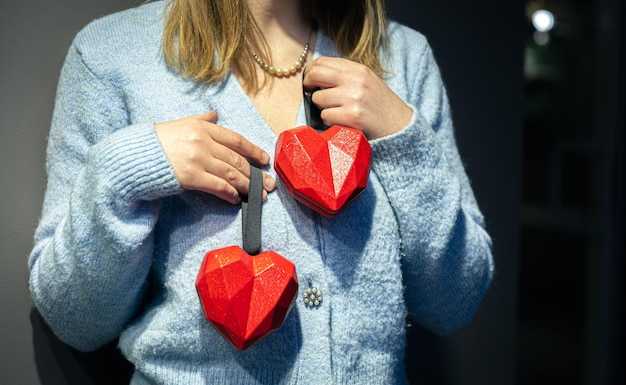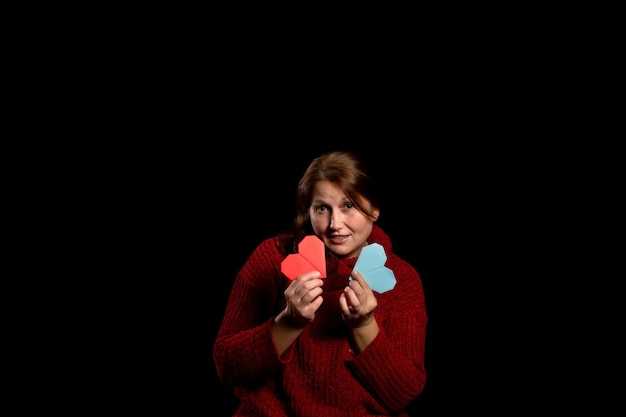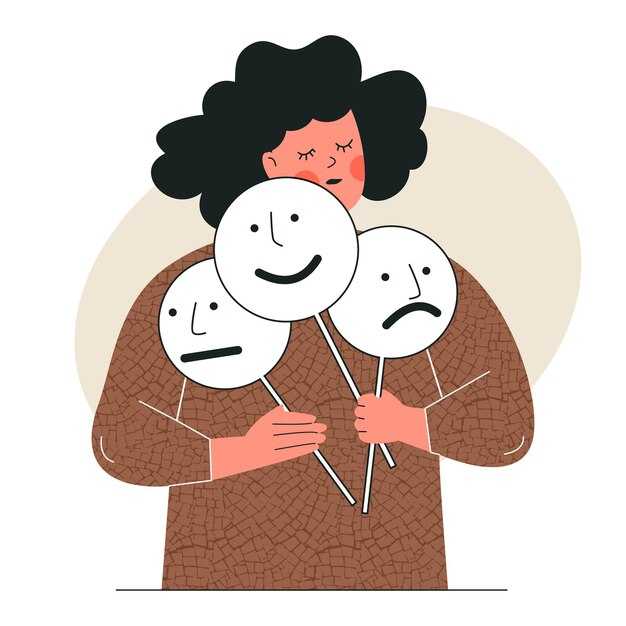You’re in a relationship and it feels bewildering, doesn’t it? One moment you feel incredibly close — seen, connected, certain that what you share is real. The next, they seem to withdraw. They haven’t left the house, but they’re gone. Their energy shifts: quiet, distant, silent. Walls go up and you stand on the other side wondering what just happened. Your mind races. The volume of your inner voice turns up. You start searching for answers. What did I do wrong? Did I say something bad? They don’t care. They shouldn’t feel like I feel. You begin to doubt your own reality. You feel yourself slipping toward doubt. You believe love shouldn’t be this hard. Love shouldn’t feel this lonely.
You’ve been told — as we’ve all been by movies, books, and well-meaning people — that when someone pulls away it means they don’t love you. If they need space, they cut contact. Silence equals indifference. Love is supposed to be easy and obvious. But that is far from the truth. It’s not just a mistake in interpretation; it’s a profound misunderstanding of what occurs inside a person. It’s a muddled view of the nervous system, of trauma, and a basic misreading of fear. What many won’t tell you is this: to an avoidant person, love doesn’t look like intensity. It’s not about chase scenes or fireworks. Intensity often signals danger to them. Avoidant love is not about avoidance as a moral failing — it is about survival. True love for them is an act of courage that shows up in the smallest, most almost-invisible moments — the times they resist their oldest programming, the pattern that has shouted at them their whole life: run. Protect yourself. Build a wall. Don’t let them in. It’s not safe.
So today we won’t talk about roses, grand gestures, or romantic clichés. We’ll discuss deep psychological truths. We’ll decode the tiny signs, the quiet energy shifts and the choices 99% of people miss. These are the indicators that something real is unfolding. When an avoidant begins to fall in a true, grounded way, it isn’t a loud proclamation. It’s a silent revolution happening inside them — a battle they wage within. For once, they choose to side with you. To recognize that revolution, we must understand where it comes from. You need to grasp why the walls exist. Let’s be very clear: no one is born avoidant. It isn’t a character flaw or a sign of being a bad person. It’s a wound. It’s an adaptation — a protective strategy learned early on. They learned that closeness did not equal safety. They learned that intimacy often brought pain, chaos, or control. Letting someone in meant being hurt.
They learned that expressing simple human needs like “I’m sad,” “I’m scared,” or “I need a hug” was met with silence or criticism — “Why are you crying? Stop being so sensitive.” Or they were simply ignored as if they weren’t there. They were taught that vulnerability, softness, and openness were dangerous — a responsibility that could be weaponized against them. So what does the child, or any human in that situation, do? They adapt. They survive. They build a strategy: a shield and a way of living inside it. They construct walls not to keep people out, but to keep themselves safe. What follows is that distance becomes oxygen. It becomes the only place they feel they can finally breathe. Independence becomes their fortress, their non-negotiable law for survival. They swear an oath to themselves: I won’t need anyone like that again. I’ll take care of myself. I’m safer alone.
Understand this: it is not a deliberate, conscious choice to hurt someone. They don’t wake up thinking, “How can I be hard today? How can I hurt the person I care about?” No. It’s a nervous-system reaction — an automatic survival program as reflexive as pulling your hand from a hot stove. Intimacy and closeness feel like fire, and their whole system is wired to withdraw to survive. This truth will change everything for you. It is the key to their heart. Real love doesn’t begin with passion or fireworks. It doesn’t start with an intense bang that floods their nervous system. Intensity feels like a threat — like losing yourself in the flames. For them,
true, sustained love begins with one quiet thing: safety, emotional safety. That is the foundation. That is the whole story. So when you experience the push-and-pull rhythm — when they draw near and then pull away so hard it feels like whiplash — please hear this: you are not losing your mind. You are not imagining it. What you are witnessing is their internal war in real time. One part of them longs to connect while another is terrified of being consumed. It’s the heart battling their programming. Your love becomes the thing that finally starts to tip the scale. It teaches their nervous system that staying can be safe. The first, most powerful sign of that is this: their heart begins to feel safe enough with you to change.
Look at their whole pattern. What is their primary defense mechanism? What happens when feelings rise, when closeness gets too real, or conflict appears on the horizon? Even the smallest disagreement can trigger instinctive survival responses: flight. Running doesn’t always mean grabbing shoes and leaving the room. Running can be an energetic withdrawal, a total shutdown. They become an icy wall. They look through you rather than at you. Their gaze flattens. It’s the phone call that goes straight to voicemail even though they have their phone in hand. It’s the cold energy that freezes you. It’s the text they read and intentionally leave unread for three days to rebuild their fortress and reestablish a safe distance. Sometimes it’s escalation — blowing a tiny issue up into something huge — because creating distance is a guaranteed way to feel safe. Their nervous system screams for an emergency exit, a self-activating escape button. You must understand this: it is not a calculated plan to hurt you. It is a reaction. It is their internal alarm system. Their amygdala is shouting: “Danger — red alert. System failing. You are being swallowed. You are being controlled. You are about to lose yourself. Get out. Be safe.”
That panic is primitive and irrational, and all their life safety has equaled solitude. So here is the sign: the first revolutionary sign of genuine love is not that their alarm disappears. That alarm is old, loud, and will remain for a long time. The sign is that they don’t run. They stay. I want you to hear this clearly: staying doesn’t look heroic. It’s not a Hollywood scene where they sweep you up and say, “I will never let you go.” It’s subtle, awkward, and reluctant. It’s the opposite of smooth. It looks like effort — visible and painful. It looks like a difficult conversation and they choose to remain in the room. They may go silent for long stretches, stare at the floor or out the window, clench their jaw, or grip the arm of a chair. Their discomfort radiates like waves. Every cell in their body wants to flee. But they don’t. They stay. They might be the first to say, “I need a minute. I need to walk. I’m overwhelmed. This is too much.” But here’s the revolutionary part: they come back. They return an hour later. Their nervous system has calmed and they say, “Okay, I’m here. I don’t want to fight. I want to fix this. Let’s try to talk about it.” That is enormous. The old pattern was to leave and let the connection die in silence. The new pattern is to regulate and choose to return to the fire because you are on the other side. What you witness in that moment is real-time self-regulation. You are watching someone actively fight their oldest and strongest survival rules. They put their feet down. They choose to endure the heat. They choose to sit with the discomfort,

to sit with the trembling fear. They do all this for one reason: because the safety they feel with you — the trust in the foundation you have built — has finally begun to outweigh the fear that has governed their life. It’s like watching someone learn to breathe underwater. It’s not graceful. It’s clumsy. They fight their instincts. They stammer. Yet they keep doing it. They opt to regulate rather than flee. They choose connection over their default conditioning. To you this may seem trivial. You might think, “I always stay.” That is the bare minimum, I promise you. For someone who structured their life and identity around emotional self-protection, this is not a small step. It’s a seismic psychological shift. You are not merely seeing affection or effort — you are witnessing transformation and the start of their healing. This is what true love looks like. That is the first courageous sign.
Now let’s talk about the second sign, because it is often the one that causes the most confusion and pain. It’s chaos. It’s contradiction — hot then cold, push then pull. It’s “come here, I miss you” followed by withdrawal. It’s a weekend of deep connection followed by five days of silence. It feels punitive, making you dizzy, exhausted, and bewildered. You’re on a roller-coaster you can’t get off: always on edge, waiting for the other shoe to drop, waiting for the warmth to leave and the cold to return. That low, constant hum of anxiety is toxic — not because it’s malicious, but because the pattern is the exact recipe for addiction. It’s called intermittent reinforcement. It’s the most powerful form of addiction on the planet and it will wire your nervous system to be anxious and hypervigilant. But here’s what you must understand: this is not a deliberate game. It’s not conscious manipulation. It’s a cycle of fear. It’s their internal system desperately trying to balance two primitive, conflicting needs: the fundamental human need for connection on one side, and the trauma-taught, survival-based need for independence on the other. The cycle goes like this: they feel lonely, so they reach out and pull you close. But as you near, all their alarms fire — fear of being consumed, a primitive scream at the loss of self, the dread of control. To survive, they must create distance. They pull away to feel safe and to find themselves again. Then it isn’t long before loneliness creeps back in,
and the cycle repeats: hot, cold, push, pull. So what is the sign of truly healing, restorative love? The sign is that this
The frantic, anxious rhythm begins to ease. The chaos does not vanish instantly; it softens little by little. That frantic, reactive cycle is slowly replaced, moment by moment, with steadiness. Now, what does that steadiness look like? Please listen. It does not mean they suddenly message you around the clock. It does not mean they become an entirely different person overnight. The shield is still there, but they are learning to lower it. The stability is small at first. It is the text that finally gets a reply — maybe not in five minutes, but within an hour or by the end of the day instead of being left to stare at a message for three exhausting days. That dependable responsiveness is not fireworks; it is peace. It lets your nervous system finally exhale. This is a huge shift. They begin initiating contact. Even a simple “hey, how was your day?” or sending an article or a song that reminded them of you matters. For someone whose whole life has been about not initiating, not showing need, this is revolutionary. It is them reaching out while their programming urges them to hide, to avoid showing need, to dodge the risk of rejection. It is them making plans with you for Friday and not canceling with a vague excuse that morning. It is them showing up physically and emotionally, with words that match deeds. Why does this happen? This is the beautiful part — the psychological reason. It happens because their nervous system is finally calming. For the first time, they begin to associate your presence not with threat or danger or overwhelm, but with stability and safety. You are no longer the fire they must run from. You become the ground beneath their feet. They no longer need chaos. They move toward feeling safe because they are learning to find safety in you. They shift from reaction to intention. They no longer simply respond to fear; they choose, deliberately, to build a relationship. As you know, we are all wired to crave passion, excitement, intensity. Passion is easy — a chemical reaction that flares bright and burns fast. Stability is work. For them especially, steadiness is a choice. It is quiet daily courage. They choose, day after day, to show up even while the old alarm still rings through their body. Passion is a spark. Stability is love you can see. It is dependable love. They communicate it not with grand proclamations but with calm, consistent actions: “I’m not going anywhere. You are safe with me.” “I am safe with you.” In that safety, something real can finally be built — and that is a sign you can trust.
Now let’s move to the third sign. This one, perhaps more than any other, is the deepest, the most sacred for avoidant people. Their inner world is a fortress. It is a locked, fortified vault. They have spent their lives as the lone guard of that stronghold. You have felt this. You may know them for months or years — their favorite food, the music they like, where they work, where they grew up — yet you still do not truly know them. You do not know their heart. Ask the simple daily question, “How are you?” and the reply is always the same: fine, good, busy, tired. A single-word wall. It feels like being in a relationship with a beautifully wrapped, locked box. It is one of the loneliest experiences in the world. Why the fortress? Because inside that box, in that vault, they keep their true self — the part they learned long ago was too much: too sensitive, too burdensome, too weak. Inside that box there is shame. Inside it there is fear. Inside it are all the small, soft parts they have been convinced are basically unlovable. So their whole life, their identity, is built on showing strength, self-reliance, proving to the world and to themselves that they’re fine, that they’re okay, busy, that they do not need anyone. Their vulnerability is not seen as a mere inconvenience — it feels like a life-or-death exposure, synonymous with humiliation and pain. Therefore the terrifying, transformative sign of true love is not the castle’s gates flung wide open. It is not a sudden flood of confessions. Walls do not collapse like that. No — the sign is that
they quietly walk to that heavy closed door, turn the key, and open it a crack. Just enough to peek inside. What does this look like? A random quiet moment where they suddenly say, “I’ve been really anxious today.” Not about you, but about work. “I feel like I’m failing.” “It seems like my mother didn’t care.” You stay calm. You remain safe. Then they breathe and go on: “My mom used to criticize me a lot. I don’t think I ever did anything right.” It sounds like a spell, the sentence you have been waiting to hear. “I don’t usually talk about this,” or “This is hard for me to say.” When you hear those lines, stop. Take a breath. Turn toward them and just listen, because saying those words is hard. This is not filler. This is not small talk. This is sacred. This is them saying, I am on the verge of changing. I am about to do the scariest thing I know how to do. My whole nervous system is screaming at me to shut up and run. I am choosing to trust you. This is the ultimate test. They are not merely sharing facts; they are testing your safety. They hold out a tiny fragile piece of themselves — their shame, their fear, their story — and they watch to see what you will do with it. Will you try to fix it? Will you judge it? Will you use it against them later? Will you panic and react emotionally? Or will you hold it? Will you receive it with calm steadiness and love? Will you say, “Thank you for telling me”? That means everything. When an avoidant shows you their past, their fear, they are not just telling a story — they are giving you their hidden identity. That is more intimate than physical closeness. It is more vulnerable than saying “I love you.” It is an act of faith. It is them saying, without saying, I have believed my whole life that this part of me is unlovable, and you — you are the first person. I am willing to risk being wrong about that. This is not mere romance. This is sacred. This is handing you the keys to their healing. This is the truest sign of love.
So you see love from an avoidant person — it does not look like movies. It is not a grand announcement. It is not loud. It is quiet. It is hidden. It is brave. It is a profound inner revolution from self-preservation toward connection. It shows in the moments they choose to stay. When their instinct shouts to run, it is in the moments they decide to remain.
When chaos has been the only language they knew all their life, it is that terrifying, sacred second they choose to open that locked door
and reveal the parts of themselves they were certain no one could ever love. If you notice these signs, even if they are small, even if they are incomplete,
know this: you are not imagining it. You are not losing your mind. You are witnessing a quiet miracle. You are witnessing a person actively and courageously rewriting their oldest stories — and they are doing it for you. So what is your role in this? Your job is not to fix them. It is not to chase them. It is not to fling that door wide open for them. Your role is to hold the space. Your role is to be the calm, the ground, the lighthouse in their storm. Because you are not only receiving their love; you are their safety. You are the living proof. You are teaching their nervous system
that love does not have to be a cage. It does not have to be confinement. It does not have to erase who they are. You are showing them that love can be a bridge — a bridge that connects their deepest fears to their heart. A bridge that finally leads them home to themselves.


 TEZY Sygnały, Że Osoba Unikająca Czuje Autentyczną Miłość do Ciebie (Psychologia)">
TEZY Sygnały, Że Osoba Unikająca Czuje Autentyczną Miłość do Ciebie (Psychologia)">

 Do their feelings matter to you?">
Do their feelings matter to you?">
 Still Missing Them? These 5 Healing Steps Will Set You Free from the Avoidant’s Spell | Mel Robbins">
Still Missing Them? These 5 Healing Steps Will Set You Free from the Avoidant’s Spell | Mel Robbins">
 How to Break Free of ENTANGLEMENT With Exes">
How to Break Free of ENTANGLEMENT With Exes">
 The Hidden Pain of ADHD in Women No One Talks About">
The Hidden Pain of ADHD in Women No One Talks About">
 My Marriage DIED because I couldn’t Communicate!">
My Marriage DIED because I couldn’t Communicate!">



 Jak być WSPANIAŁYM Mężem">
Jak być WSPANIAŁYM Mężem">
 I didn’t understand my Wife until I did THIS">
I didn’t understand my Wife until I did THIS">